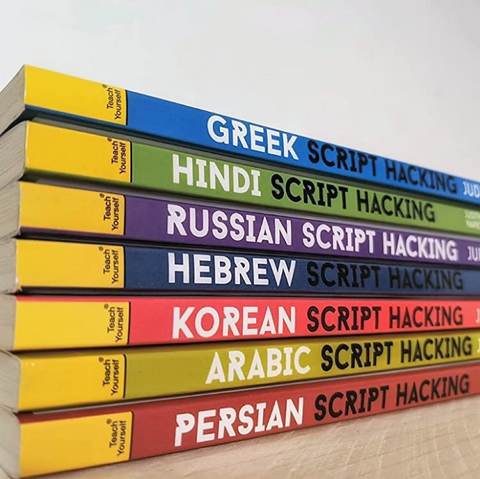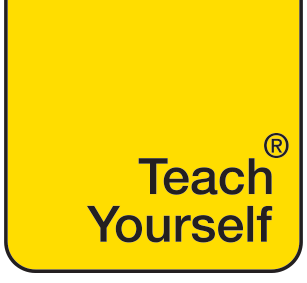Judith Meyer, author of the Script Hacking courses for 7 different alphabets, writes about a revolutionary approach that turns alphabets into fun puzzles to figure out.

My parents' Sunday paper had a puzzle section. One of these puzzles was always a cryptogram - a famous quote where each letter had been replaced by a symbol, so that you had to guess which symbol corresponded to which letter in order to read the quote. The symbols were always different: fruit one week, flags another, and one week they were even Chinese characters. That's when I noticed something. The characters were not chosen for their phonetic value, they were just random! So if you had spent a couple hours figuring out which Chinese characters was used for A, B, C and so on, all that knowledge would be worthless as soon as you turned the page, because real Chinese is different.

And I thought: it doesn't have to be like that. What if you got the enjoyment of solving a puzzle and at the end you could actually read a foreign alphabet? You could learn to read Greek in one weekend, Cyrillic the next, Korean or Arabic the weekend after that... And being able to decipher things can be a really useful skill when traveling: figure out signs, names of streets and subway stops, in Ukraine I was even able to read most of a pizzeria menu, without any knowledge of the language, just because mozzarella and salami (and more) are still mozzarella and salami in Ukrainian, only written as моцарела and салямі.

So I decided to create language courses that are essentially just a series of puzzles. Very easy puzzles, since I wanted to appeal to non-geeks as well, but challenging enough for that sweet dopamine release when you solve one. I introduce one letter at a time and I even tell you how it is pronounced, all you have to do is keep reading words and figure out what they mean (they are all things you would recognize, like salami) and at the end of a few hours you have mastered a foreign alphabet.

This is the essence of the Script Hacking method, which is currently available for Greek, Russian, Hebrew, Arabic, Korean, Hindi, Persian and Ukrainian (publishing February 2024). For other alphabets, such as Burmese or Thai, you could try to create something similar by looking up how to write international words like taxi and salami, or even proper nouns like Anna and Honolulu, and then comparing the spelling in the foreign alphabet to the English one. Puzzles are more fun if you have someone else create them for you though, so that you don't know the solution in advance. I hope to create many more puzzles for more alphabets and make learning alphabets the most exhilarating activity since the invention of crosswords!


